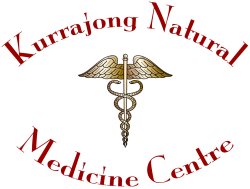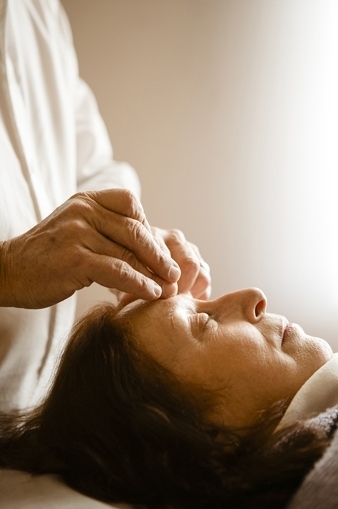Dry Eyes Syndrome - A Chinese Medicine Perspective
What is Dry Eyes Syndrome
According to the Mayo Clinic, Dry eye syndrome, also known as xerophthalmia or keratoconjunctivitis sicca, can be treated using acupuncture and Chinese herbal medicine. It is a common condition that occurs when tears aren’t able to provide adequate lubrication for the eyes [1]. This causes irritation of the eyes and moderate to severe discomfort.
Other signs and symptoms may include:
- A stinging, burning or scratchy sensation in your eyes
- Stringy mucus in or around your eyes
- Sensitivity to light
- Eye redness
- A sensation of having something in your eyes
- Difficulty wearing contact lenses
- Difficulty with nighttime driving
- Watery eyes, which is the body’s response to the irritation of dry eyes
- Blurred vision or eye fatigue
Mainstream drug treatments commonly use local tears substitutes, anti-inflammatory and immunosuppressive drugs, hormones, and other drugs, but the effect of tears supplement for severe DED is poor. Long-term use of anti-inflammatory and immunosuppression and hormone replacement therapies can cause side effects [2, 3].

How Does Traditional Chinese Medicine (TCM) view Dry Eyes Syndrome
In traditional Chinese medicine, the eyes are the sensory organ which belongs to the Liver Channel. The Liver channel ‘opens the eyes’ and is primarily responsible in nourishing the eyes by circulating Qi and Blood to them.
According to Traditional Chinese Medicine (TCM), all diseases involving the eye are closely related to the liver. It is also understood that the eye is nourished by all of the internal organs in the body. The lens of the eye and the pupil basically belong to the kidney, the sclera to the lungs, the arteries and veins to the heart, the top eyelid to the spleen, the bottom eyelid to the stomach, and the cornea and iris to the liver. The Spleen and Stomach also control circulation in the eyes. Therefore an imbalance in any of the internal organs may lead to eye disease.
In the case of dry eye syndrome, there are primarily two organ systems at work (i) the Liver and (ii) the Kidneys. The pathologies involved are primarily full-heat (Yang excess / Fire rising), empty-heat (Yin deficiency), Blood deficiency or a combination. In the main, however, Liver Blood & Yin Deficiency with Yang-heat rising is the most common presentation [3] and dry eyes are due to deficient Liver-Yin not nourishing and moistening the eyes.
In other words, from the traditional Chinese medicine (TCM) perspective, systemic yin-deficiency refers to a syndrome where yin qi (energy) in the body is too weak to counterbalance yang qi, which results in malfunction of a typical set of body organs, since all organs require the correct balance of energies for harmony or proper physiological function. When yin-deficiency syndrome is encountered, the earliest manifestation of imbalance would be fluid deficiency, and dry eye symptoms may emerge from this deficiency [4]. In addition, Blood (energy) and Yin have an interdependent relationship and it is not possible to have Liver Yin deficiency without Blood deficiency [5].
Research has shown that Acupuncture is an effective treatment for Dry Eye Syndrome, however it needs to be tailored to the individual patient [6,7,8].
At Kurrajong Natural Medicine Centre our highly qualified and experienced practitioners will identify the specific pattern or patterns that are the root cause of health issue and develop a treatment program specifically designed for you. Simply call (02) 4573 0784
Things You Can Do To Help Yourself If You have Dry Eyes Syndrome
Blink Regularly:
When using screens, we often blink less frequently, which can exacerbate dry eye symptoms. Consciously remind yourself to blink more often. Blinking helps to spread your natural tears more effectively across the surface of your eyes, providing necessary lubrication.
Follow the 20-20-20 Rule:
To reduce eye strain when working on a computer or using any digital device, every 20 minutes, focus on an object at least 20 meters away for a full 20 seconds. This short break can help rest your eyes and reduce the symptoms of dry eye.
Use Artificial Tears:
Lubricating eye drops, or artificial tears, can provide temporary relief by supplementing your natural tear film. Be cautious about using drops that “get the red out,” as these can sometimes worsen dry eye symptoms in the long run. Instead, opt for preservative-free artificial tears, especially if you need to use them more than four times a day.
Humidify Your Environment:
Especially in winter or in dry climates, the air inside can become very dry. Using a humidifier adds moisture to the air, which can help prevent your tears from evaporating too quickly.
Stay Hydrated:
Drinking enough water is crucial for overall health and helps maintain sufficient moisture levels in your eyes. Aim for about 8-10 glasses of water a day, though this can vary based on your activity level, the climate, and your overall health.
Maintain a Healthy Diet:
Consuming foods high in omega-3 fatty acids can help alleviate the symptoms of dry eye. This can include fish like salmon and mackerel, as well as flaxseeds, chia seeds, and walnuts. These nutrients help support the health of your tear film.
Protect Your Eyes:
When outdoors, especially on windy or sunny days, wear sunglasses to protect your eyes from wind and UV radiation. Sunglasses that wrap around to the sides of your face can offer the best protection.
Adjust Computer Screen Settings:
Position your computer screen so that it’s slightly below eye level. This reduces the surface area of your eyes that is exposed, which can help slow tear evaporation. Also, adjust the screen’s brightness to a comfortable level and increase the text size to reduce squinting.
Limit Contact Lens Wear:
Contact lenses can exacerbate dry eye symptoms for some people. Consider reducing the number of hours you wear them, switch to glasses for part of the day, or talk to your eye doctor about using contact lenses designed for dry eye sufferers.
Warm Compresses:
Gently applying a warm, damp cloth to your closed eyelids for a few minutes can help loosen the oils in the eyelid glands, improving the quality of your tears. This is particularly helpful if you have meibomian gland dysfunction, a common contributor to dry eye.
Avoid Smoke and Air Pollution:
Smoke, whether from cigarettes, fires, or other sources, can irritate the eyes and exacerbate dryness. Similarly, high levels of air pollution can have a detrimental effect on eye moisture. Try to limit exposure to these irritants as much as possible.
References
- Mayo Clinic (2021) Dry Eyes. URL: https://www.mayoclinic.org/diseases-conditions/dry-eyes/symptoms-causes/syc-20371863 Last visited: 10/11/2021.
- Yang L, Yang Z, Yu H, Song H. Acupuncture therapy is more effective than artificial tears for dry eye syndrome: evidence based on a meta-analysis. Evid Based Complement Alternat Med. 2015;2015:143858.
- Xu, J., Chen, S., Hao, X., Wu, G., Wang, S., Yuan, H., Jin, Q., Sun, M., & Xie, L. (2020). Traditional Chinese medicine Xiaosheng Powder for dry eye disease: A protocol for systematic review and meta analysis. Medicine, 99(35), e22019. https://doi.org/10.1097/MD.0000000000022019
- Tong L, Htoon HM, Hou A, et al. Acupuncture and herbal formulation compared with artificial tears alone: evaluation of dry eye symptoms and associated tests in randomised clinical trial. BMJ Open Ophthalmology 2018;3:e000150. doi: 10.1136/bmjophth-2018-000150
-
Marciocia, G. (1989) The Foundations of Chinese Medicine: A Comprehensive Text for Acupuncturists and Herbalists. The Treatment of Disease with Acupuncture and Chinese Herbs, Edinburgh: Elsevier Churchill Livingstone.
-
Kim, B. H., Kim, M. H., Kang, S. H., & Nam, H. J. (2018). Optimizing acupuncture treatment for dry eye syndrome: a systematic review. BMC complementary and alternative medicine, 18(1), 145. https://doi.org/10.1186/s12906-018-2202-0
-
Ba J, Wu Y, Li Y, Xu D, Zhu W, Yu J. Updated meta-analysis of acupuncture for treating dry eye. Med Acupunct. 2013;25:317–327. doi: 10.1089/acu.2013.0968.
-
Lee MS, Shin B, Choi T, Ernst E. Acupuncture for treating dry eye: a systematic review. Acta Ophthalmol. 2011;89:101–106. doi: 10.1111/j.1755-3768.2009.01855.x.
Disclaimer
Disclaimer information for users of the Kurrajong Natural Medicine Centre, Namaste Yoga Kurrajong and The Herbal Health Coach website.
Page last updated: 26th June 2023
Information provided for education and research information only
The information on this website is presented by Kurrajong Natural Medicine Centre for the purpose of disseminating health information free of charge for the benefit of the public.
While Kurrajong Natural Medicine Centre has exercised due care in ensuring the accuracy of the material contained on this website, the information on the site is made available on the basis that Kurrajong Natural Medicine Centre is not providing professional advice on a particular matter.
This website is not a substitute for independent professional advice. Nothing contained in this site is intended to be used as medical advice and it is not intended to be used to diagnose, treat, cure or prevent any disease, nor should it be used for therapeutic purposes or as a substitute for your own health professional’s advice.
Kurrajong Natural Medicine Centre does not accept any liability for any injury, loss or damage incurred by use of or reliance on the information provided on this website.
Quality of information
Kurrajong Natural Medicine Centre makes every effort to ensure the quality of the information available on this website and updates the information regularly. Before relying on the information on this site, however, users should carefully evaluate its accuracy, currency, completeness and relevance for their purposes, and should obtain any appropriate professional advice relevant to their particular circumstances. Kurrajong Natural Medicine Centre cannot guarantee and assumes no legal liability or responsibility for the accuracy, currency, completeness or interpretation of the information.
The material may include the views or recommendations of third parties and does not necessarily reflect the views of Kurrajong Natural Medicine Centre or indicate a commitment to a particular course of action.
Links to other websites
This website contains links to other websites which are external to Kurrajong Natural Medicine Centre. Kurrajong Natural Medicine Centre takes reasonable care in selecting linking websites but Kurrajong Natural Medicine Centre accepts no responsibility for material contained in a website that is linked to this site. It is the responsibility of the user to make their own decisions about the accuracy, currency, reliability and correctness of information contained in linked external websites.
Links to external websites are provided for the user’s convenience and do not constitute an endorsement or a recommendation of any third party products or services offered by virtue of any information, material or content linked from or to this site. Users of links provided by this site are responsible for being aware of which organisation is hosting the site they visit.
Views or recommendations provided in linked sites may include the views or recommendations of third parties and do not necessarily reflect those of Kurrajong Natural Medicine Centre or indicate a commitment to a particular course of action. .




